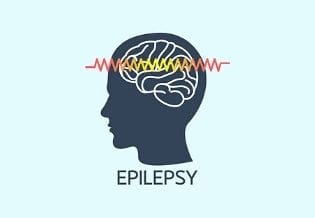About International Epilepsy Journal
A peer-reviewed, open access platform advancing epilepsy research, clinical practice, and patient outcomes through rigorous scholarship and global collaboration.
IEJ publishes research spanning the full spectrum of epilepsy science and clinical practice. Our interdisciplinary approach welcomes contributions that advance understanding of seizure mechanisms, improve diagnostic precision, optimize therapeutic strategies, and enhance quality of life for individuals living with epilepsy.
Diagnosis, classification, treatment protocols, surgical interventions, drug-resistant epilepsy, and clinical outcome measures.
Focal and generalized epilepsies, age-specific syndromes, genetic epilepsies, and syndrome characterization across populations.
Electroencephalography, video-EEG monitoring, ictal and interictal patterns, source localization, and advanced recording techniques.
MRI protocols, PET scanning, MEG studies, functional imaging, structural abnormalities, and imaging biomarkers.
Childhood-onset seizures, developmental aspects, neonatal seizures, febrile convulsions, and pediatric treatment approaches.
Antiepileptic drugs, novel therapeutics, pharmacokinetics, drug interactions, therapeutic monitoring, and treatment optimization.
Presurgical evaluation, resective and ablative procedures, neurostimulation, surgical outcomes, and postoperative management.
Seizure mechanisms, neural networks, epileptogenesis, animal models, genetic studies, and molecular pathways.
Psychiatric comorbidities, cognitive impacts, psychosocial aspects, stigma, patient-reported outcomes, and healthcare access.
Diverse Formats for Impactful Research
- Original Research Articles: Full-length studies presenting novel findings in basic, clinical, or translational epilepsy research with rigorous methodology and statistical analysis.
- Systematic Reviews & Meta-Analyses: Comprehensive evidence syntheses addressing critical questions in epilepsy diagnosis, treatment, or outcomes using standardized review methodologies.
- Clinical Case Reports: Documentation of rare presentations, unusual syndromes, innovative treatments, diagnostic challenges, or instructive clinical scenarios with educational value.
- Short Communications: Preliminary findings, methodological innovations, pilot studies, or timely observations warranting rapid dissemination to the epilepsy community.
- Perspectives & Editorials: Expert commentary on emerging trends, controversial issues, research priorities, policy implications, or paradigm shifts in epilepsy care.
- Letters to the Editor: Scholarly correspondence offering critical analysis, alternative interpretations, or additional data related to previously published IEJ articles.
Expert evaluation by specialists in epileptology, neurology, and neuroscience ensures scientific quality and clinical relevance.
Streamlined editorial workflows deliver fast decisions and quick online publication to accelerate knowledge translation.
Open access format maximizes reach to researchers, clinicians, educators, and policymakers worldwide without subscription barriers.
Dedicated editorial assistance guides authors through submission, review, and publication with clear communication at every step.
Articles receive DOI assignment, cross-referencing, and promotion through academic databases and social channels.
Clear editorial policies, ethical standards, and author guidelines ensure fairness and integrity throughout the publication process.
Submission Guidelines
Authors are encouraged to review our detailed Instructions for Authors before preparing manuscripts. All submissions must be original work not under consideration elsewhere, written in clear English, and formatted according to journal specifications.
Key Requirements:
- Structured abstract (background, methods, results, conclusions)
- Ethics approval and informed consent documentation for human studies
- ARRIVE guidelines compliance for animal research
- Conflict of interest disclosure and funding acknowledgment
- Data availability statement and repository links when applicable
- References formatted in Vancouver or AMA style
Submit manuscripts through our online submission portal or via email to [email protected]. Authors receive acknowledgment within 72 hours and regular updates on manuscript status.
IEJ maintains rigorous standards aligned with COPE (Committee on Publication Ethics) guidelines. Our peer review process evaluates scientific merit, methodological rigor, ethical compliance, and clinical significance. Reviewers provide constructive feedback to strengthen manuscripts while maintaining confidentiality and objectivity.
As an open access journal, IEJ makes research freely available to readers worldwide immediately upon publication. Authors retain copyright under Creative Commons licensing, enabling broad dissemination while ensuring proper attribution.
To sustain high-quality publishing services, IEJ charges Article Processing Charges (APCs) after manuscript acceptance. APCs cover peer review management, copyediting, production, hosting, and long-term preservation. Waivers or discounts may be available for authors from low-income countries or without institutional funding-inquiries are encouraged.


